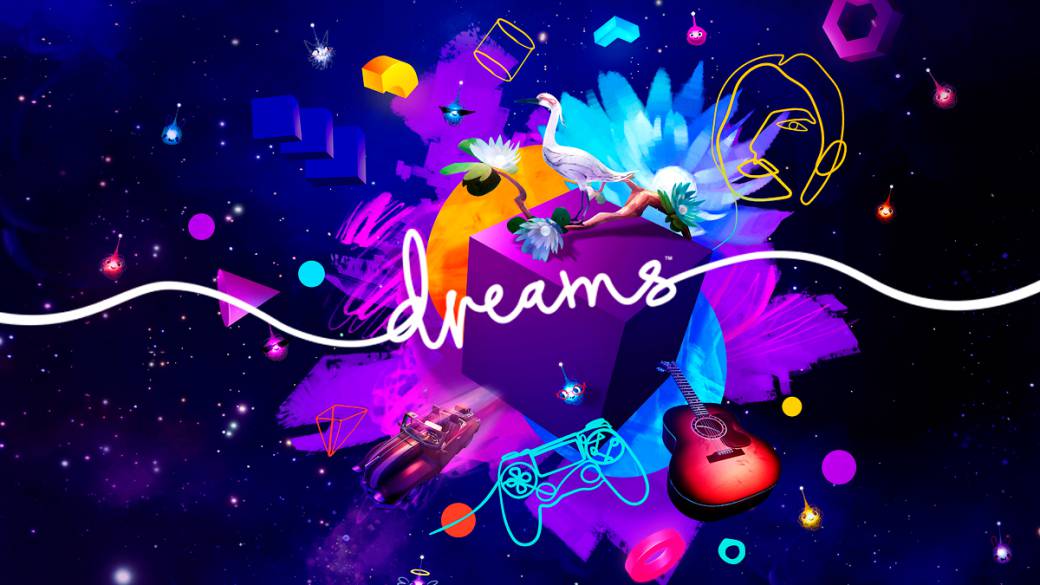
The ambitious Media Molecule project finally lands on Playstation 4, we analyze a colossal work full of creativity and community ingenuity
It's hard to know where exactly dreams come from. Images, sensations and sounds that are in our head and that appear while we sleep, but somehow they are still there when we are awake. Media Molecule has always liked to talk about their games in great terms. They sell their playable experiences as dreams and illusions, often talk about the power of creativity, unleashed imagination, and how it is the engine of great stories. Tearaway and LittleBigPlanet are living examples of this. They play with the homemade and handmade, like a child cutting paper figurines, or moving dolls on a table, making believe that what is happening there is real.
But Dreams is a different beast. In the new Media Molecule, that child who played with paper and cardboard now has to learn to model miniatures and animate them, he has to build three-dimensional environments, compose a soundtrack and design a functional video game, with his victory and defeat states, intelligence artificial, triggers, elements of the world with different variables. In Dreams, that dreamy boy has become… A videogame designer.
In many ways, Dreams feels like the last trip to the imagination that Media Molecule has been wanting to achieve since it started as a company. They have achieved an overwhelming work, molded entirely by the community and with a rhythm of content creation that can be fun for years. On the other hand, the division here between the average user and the developer user is bigger than ever. This last game of Media Molecule welcomes you with open arms from the first minute … but you have to want to enter, and once you do, it will ask a lot from you.
At this point, hopefully the famous question of what is Dreams? It has been resolved, but if not, we hope to resolve it throughout this text along with many others. For now, it is well to clarify that the game that is released now is the finished version open to all public, a game that has been in the hands of a certain user sector for about a year, and much more in development. Along with its launch, Dreams brings a story mode and numerous improvements in all areas. In the creation tools, in the control, and in a redesigned interface that brings together all the content in a much more attractive and immediate way.
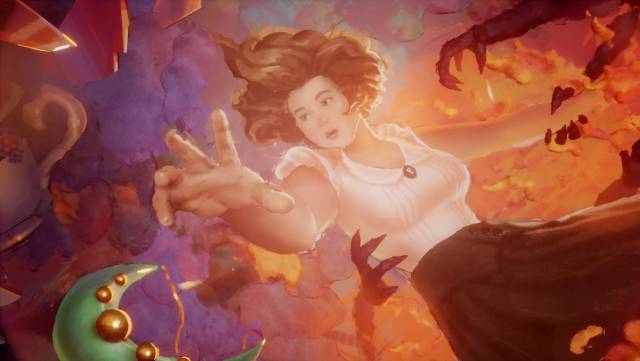
Art's dream
The anticipated "story mode" of Dreams has been made to beg. For many, it is an important turning point in their journey with the game after beta and early access. For others, it can be an excellent first contact with the world of Dreams, their characters and their possibilities
Art's dream is a fabulous adventure that combines fantasy, science fiction, and the power of music. All this covered with a dreamlike touch (how could it be otherwise), jazz music, situations and dialogues rocambolescas, songs !, and plots that are interspersed with each other. In the background, at a thematic level, a regular Media Molecule: imagination and creativity, how it makes us better and how it helps us to recontextualize reality, helping us to cope with adversities.
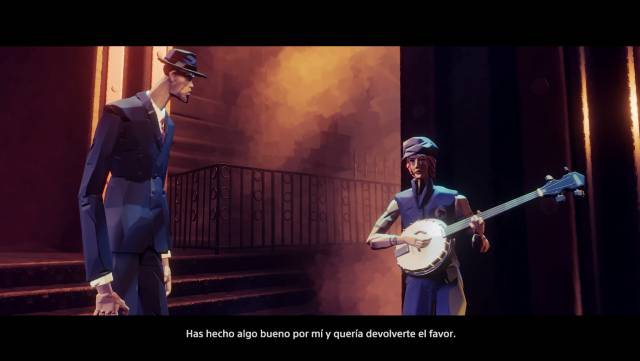
In a sense, this story proposed by Mm means closing a circle. Since its introduction, the game has been associated with music. His presentation trailer at E3 2015 opened with a pianist playing a piece. In E3 of 2018, a band took the stage with PS4 controls in their hands and, in one of Sony's strangest demos in recent years, gave a concert using only the game's musical creation tools. In the background, on the screens, some of the members of the protagonist band in this story mode sang or played along with them.
Art's dream develops through three main plots that relate to each other. They all have to do with Art, a musician fallen out of favor who left his band and no longer finds inspiration to make music, but they lead us to control other characters who, being part of their dreams, will help him deal with his problems real. Frances and Foxy (the first known since the beginning of the marketing campaign, a teddy bear with a bow on the head and a hammer) star in a beat'em up set in a fantasy universe in which they have to look for a dragon , D-BUG and ELE-D are two robots that star in a science fiction platform game
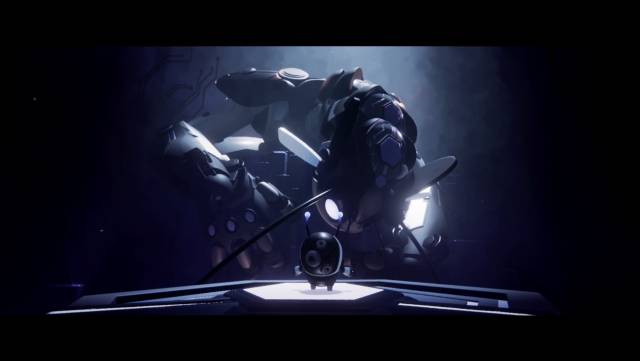
Art, meanwhile, lives its part of the story in a kind of alternative version of the 50s, and is controlled as a graphic adventure point and click. Everything is rhythmic in this adventure that includes musical moments and the use of our elf (the cursor) to interact with numerous objects. Each of these stories evolves along its path, introducing new mechanics and reaching a satisfactory climax.
Art's dream is a fantastic introduction to what is possible with the Dreams editor. But it is also a campaign that works on its own merits. The production values are high, with professional dubbing, very careful kinematics, and worked mechanics that fit perfectly within each genre. Each character is controlled in a very different way and they have a good feeling. Gone is that platform in which Sackboy floated, the characters here feel more precise. In fact, it seems that unlike in some of the LittleBigPlanet campaigns, in Mm here they wanted to show off. After a while with only community content available, it is satisfying to experience the experience that developers consider as "canon." And see that it works so well.

For those players who were waiting for the story mode to get on the Dreams car, it is important to know that its duration is quite short and is around 2-3 hours. The story mode should not be the main reason to play anyone's Dreams, but on the other hand, it works scary to whet the appetite for new experiences that we will find in the community, and will enliven the artistic facet of the most creative users.
In any case, the presence of Media Molecule is not limited to that way history. The dream universe has a specific category of minigames created by Mm. There are 3D and 2D platforms, strategy, multiplayer minigames, shooters … These minigames are varied and very fun, and their value is "less educational" in reference to Dreams tools. They are small creations designed to be enjoyed as if they were part of the community.
A dream universe to explore
The first time we take a look at the Dreamiverse, there is a moment of wonder that is hard to match in the middle. The Dreams community offers us hundreds of user creations from all over the world in the same space. Games, levels, controllable characters, modeling, musical themes, sounds, mechanics, short films or audiovisual content of all kinds are part of this constantly expanding universe. Literally, every day we enter Dreams we will have new things to play.
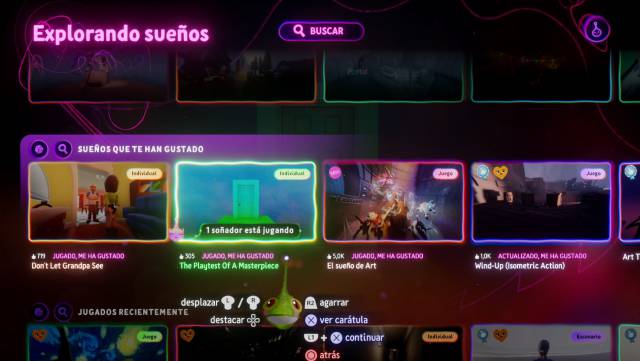
The power here is entirely the community, of course. With few exceptions that we have previously named Mm, all the content we can enjoy is created by someone (or several people in collaboration) using the powerful tools that Dreams makes available to its players. This means that the level of quality of the content we play is very variable. There are really worked games, with good level design, solid mechanics and well characterized characters. But there are also levels there are half baked in which a Mario who has seen better times jumps through pre-designed platforms and arranged a little anyway.
In this sense, Media Molecule has done a splendid job in managing the content. The “Exploring dreams” menu has a design similar to a Netflix platform. There is a main cover that highlights new content weekly, and everything is organized by dynamic and quite useful lists that are formed both by community trends and personal recommendations based on the things we play. It also has a quite powerful search engine. It is easy to search for concrete things by applying different filters and labels. And to this we must add that we can create our own playlists, add content to the queue or, if we do not feel like thinking what we want to play, we can get carried away by chance and make a random playlist of games that will be played one after another as we finish it.
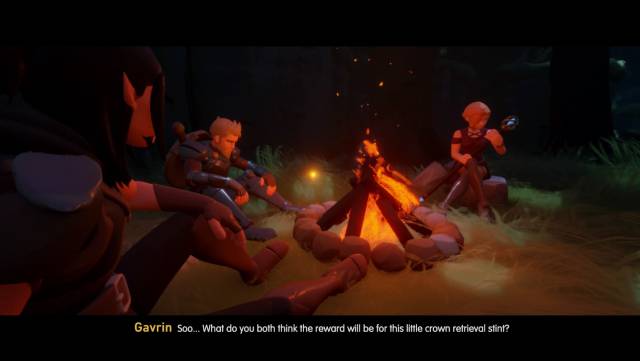
The term they use since Mm is one as ambiguous as "dreams" for games created by users, but the truth is that the nomenclature is not clear. In Dreams we can play from mini-games of just five minutes long, to much longer creations that include screen changes, save points, complex systems such as level rises, power-ups purchase, combat systems or own menus. The truth is that every creation of Dreams, or the best ones, at least, feels like a videogame of its own, with its own mechanics, its own universe and its own modes of interaction. There is no canon way to play Dreams as there was in LittleBigPlanet with the platforms. Here everyone sweeps home according to their tastes, and decides if they want to spend their time playing survival horrors, platforms, shooters, or role-playing games, just to give some examples of the many types of games that have already been created for the community .
And the key question of all this is one that many will have in mind right now: is all this fun? On paper it seems too good to be true. We spend our money to play a video game and in return we get a huge catalog of games that keeps growing and growing. Sounds good doesn't it?
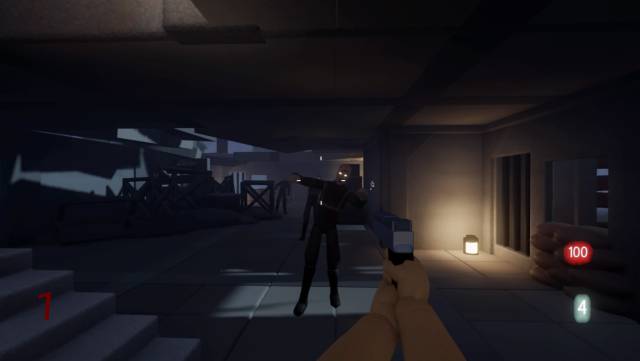
Well, the quick answer is yes, of course! The slow and argued response is also affirmative, but it involves a series of nuances that must be taken into account. Dreams is fun in the same way that LittleBigPlanet is fun, that Garry’s Mod is fun, or that playing games created in a Game Jam is fun (in fact, there are jams in Dreams, organized by Mm regularly). It is fun because of the inherent value of the discovery, because of the internal humor it has once you enter the community and because if you like video games, it is very possible that enjoying them in small and experimental doses is something you are interested in doing.
Because the creations made with Dreams are also sometimes clumsy, simple and without many devices or production values. And of course, they are quite far from any commercial game that we can keep with love. Dreams has its own language, and must be understood and enjoyed as such. Its player profile is probably more akin to those who regularly fiddle on itch.io in search of discovering new amateur games with which to kill time, and not so much in the strict player profile that it demands minimum production values to enjoy a game.

Dreams encompasses the most complex ecosystem Mm has ever created, and creations are beginning to reflect it. At the time we wrote these lines, there are many finished games in the community that can be enjoyed, but there are also many projects that have been under construction for months and that do not seem to end soon. Some of the most ambitious works are beginning to emerge and with them we can take many surprises to discover how they exceed the limits of what seemed possible with these tools, and yet … The new Media Molecule works best when it moves away from ambitious projects and of trying to imitate the industry, and instead he has a good time with his own proposals. The funniest face of Dreams is when it is rare, experimental and concise, and it is proposed to do things that we do not normally see in the middle.
Mom, when I grow up I want to be a video game developer
In the robust and complex Dreams editor you don't have to enter a single line of code, but of course it's the only thing missing. Throughout all this time Media Molecule has attended several events and has made dozens of videos on YouTube, or direct on Twitch trying to re-create in a pleasant way the huge mastodon they have created, but the truth is that no matter how much they sell it otherwise, creating content in Dreams is complex.
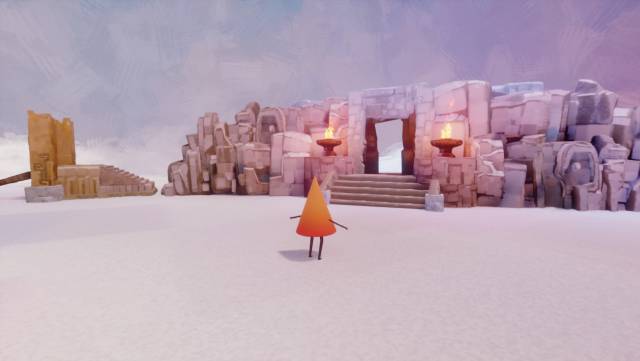
And it is complex because what they have assembled has ceased to resemble a level editor as it is traditionally conceived and looks much more like a video game engine itself. Here the thing is not going to submit to a frame and be creative with it (as happens for example in Mario Maker), here we have a complete and full blank page.
What do we want to do? Do we want to make a shooter? A platform game? Maybe we want to honor classic graphic adventures? What type of camera will we use? How does the player win and lose? And that is at the design level. In Dreams you have to be multidisciplinary and think in all areas. The artistic section of our game is important, as is music or menus.
To make all this more bearable, the tools are gamified and find a good home in the Dualshock 4, which becomes a much more successful ally than one would expect for this type of task. The inclusion of motion control is key. Creating with the command is comfortable and intuitive once the barrier of learning the commands is passed, and for this, Mm has designed a good number of tutorials that teach us step by step to use their tools with case studies. Completing them all will probably take us more time than completing the story, but the ideal is to intersperse them with our own creations, so that at our own pace we focus on knowing what we need.
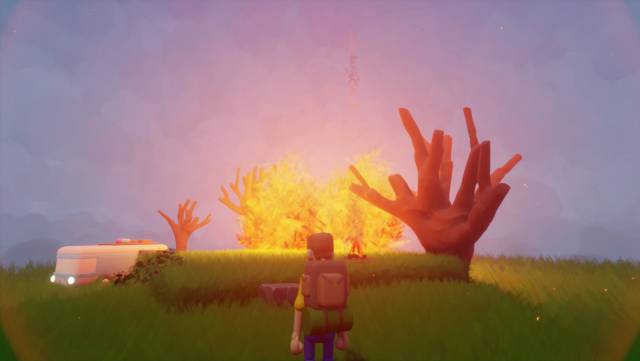
There is a conscious effort on the part of the developers in not doing all these complex or abstract tools and it is a work to be grateful for. Modeling, designing scenarios, animating characters or creating the rules for artificial intelligence are not complex tasks of learning, but of mastering and exploring all its possibilities, and when we have to do it all together, the set intimidates.
If the blank page scares us, important work has also been done in order to boost our creations with the help of the community. The creation in Dreams, although it is ultimately a solitary process, has social elements. Anything we believe, however small and insignificant, can be shared with other users and used for other creations, and we can do the same to the contrary. Maybe we have created the perfect character and mechanics, but we get stuck when modeling the environments. Almost certainly, the community will have something that can help us complete our creation, and can be accredited when publishing the final product.
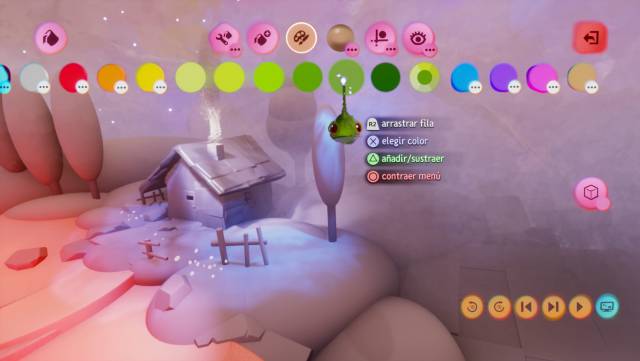
The result is a set of tools with which it is relatively easy to do any type of creation in a short time if what we want is to get out of the way. But creating something with which we are satisfied and that can be up to the best in the community (or the level of quality that Mm proposes in its campaign) entails artistic sensitivity, patience, dedication and many hours of work.
This leads us to ask ourselves a final question and it is the extent to which Dreams is focused on a general public and it is not a niche platform for a more specialized and faithful public. The most creative users can play here to be video game developers and they will have everything they need in one place, but in return they find an ecosystem that asks for a lot of time and effort in order to produce something of good quality. On the other hand, those most advanced students who already have experience in video game development will be surprised by the versatility and immediacy of Dreams, but you can also ask (and rightly so), how much time and effort is worth investing in an ecosystem that will not necessarily report benefits outside the platform.
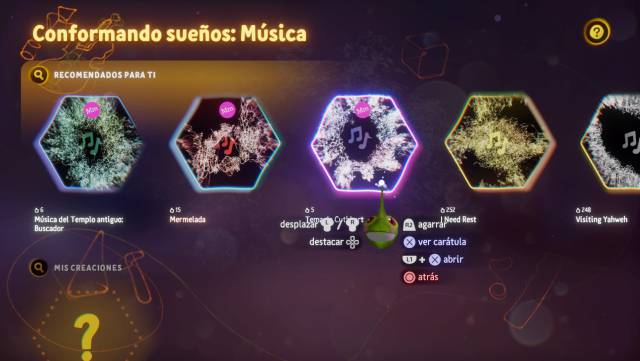
In other words, what Media Molecule is asking its users here for is more than dreams. They are hours of work and dedication that everyone will decide to what extent they want to invest. If we do, however, we can be involved in almost a miniature video game industry. We can patch our creations, send them to other users to play and make reviews, share our creations very easily in social networks and participate in jams, win prizes and, for those best creations: the Impys, an awards ceremony organized by Media Molecule annually .
This mime of Mm to his community is the icing on the cake to an incredibly ambitious project that is the culmination of years of work under a unique design philosophy. As we introduced at the beginning of this text, Dreams feels like the evolution of everything your study has done so far. Promoting the creativity of users and creating a space that allows them to create and develop within a community. It is the last stop on this road that they have traveled for so many years that it finds its final version here. And yet, all this has only just begun.

CONCLUSION
Dreams is an overwhelming project, a milestone in console video games whose limits are more than imagination, talent and community work. And for now, there seems to be plenty of all this. Its long-anticipated, though brief, story mode serves as a showcase for developers and as a perfect showcase of what is possible with these tools. Whether as a player or as a creator, your community welcomes you with open arms, and has hours and hours of content in a unique catalog that keeps growing. In Dreams there are better creations, there are worse creations, small games so cared for that you wish they existed outside the platform and others so sharply failed that they are enjoyed only by the involuntarily funny result. But for some and for others, the ecosystem that Media Molecule has created here is so careful and the sensation of discovery is so recurrent, that just being in this community messing with the stories that so many users want to tell us is more than enough reward.
THE BEST
- Art's dream is a fantastic way to introduce us to the Dreams experience
- Browsing the content of the community is intuitive and agile, and without loading times
- The creation tools allow an unusual freedom, we can build what we want
- The implication of Media Molecule is total, there are constant updates, events, new selections of games …
WORST
- The quality of the content is variable and very dependent on the community
- Creating is intuitive and we have a lot of help, but it requires a lot of dedication and hours of work
Very good
Remarkable game that we will enjoy and remember. A good purchase, highly recommended for lovers of the genre. It is well taken care of at all levels.
